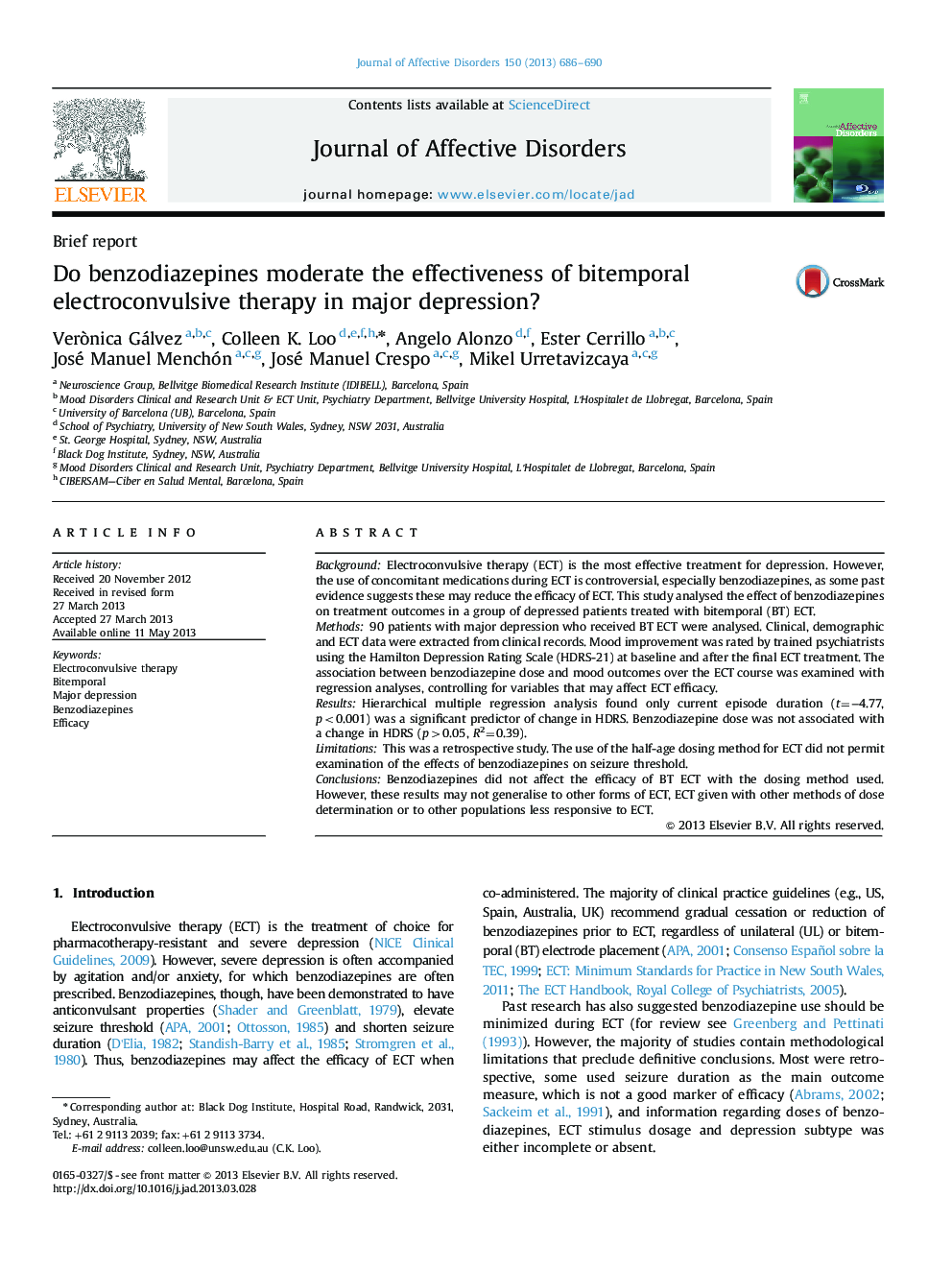| Article ID | Journal | Published Year | Pages | File Type |
|---|---|---|---|---|
| 6234394 | Journal of Affective Disorders | 2013 | 5 Pages |
BackgroundElectroconvulsive therapy (ECT) is the most effective treatment for depression. However, the use of concomitant medications during ECT is controversial, especially benzodiazepines, as some past evidence suggests these may reduce the efficacy of ECT. This study analysed the effect of benzodiazepines on treatment outcomes in a group of depressed patients treated with bitemporal (BT) ECT.Methods90 patients with major depression who received BT ECT were analysed. Clinical, demographic and ECT data were extracted from clinical records. Mood improvement was rated by trained psychiatrists using the Hamilton Depression Rating Scale (HDRS-21) at baseline and after the final ECT treatment. The association between benzodiazepine dose and mood outcomes over the ECT course was examined with regression analyses, controlling for variables that may affect ECT efficacy.ResultsHierarchical multiple regression analysis found only current episode duration (t=â4.77, p<0.001) was a significant predictor of change in HDRS. Benzodiazepine dose was not associated with a change in HDRS (p>0.05, R2=0.39).LimitationsThis was a retrospective study. The use of the half-age dosing method for ECT did not permit examination of the effects of benzodiazepines on seizure threshold.ConclusionsBenzodiazepines did not affect the efficacy of BT ECT with the dosing method used. However, these results may not generalise to other forms of ECT, ECT given with other methods of dose determination or to other populations less responsive to ECT.
